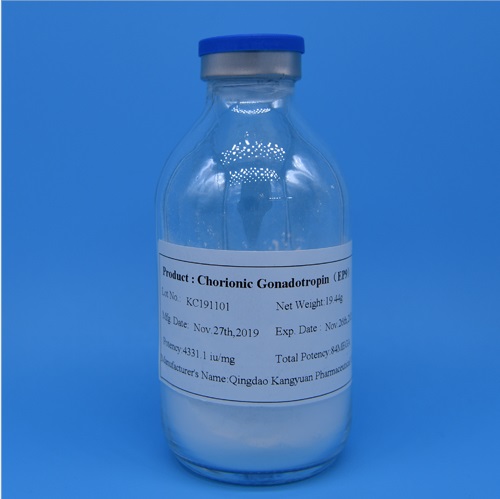Human Menopausal Gonadotropin (HMG) is a medication commonly used in
fertility treatments to stimulate ovulation. It consists of a combination of
follicle-stimulating hormone (FSH) and luteinizing hormone (LH), which play
vital roles in the development and release of eggs from the ovaries. This
article aims to provide a comprehensive understanding of the functions and
benefits of HMG in fertility treatments.
HMG Composition and Mechanism:
HMG is derived from the urine of postmenopausal women and contains both FSH
and LH hormones.
FSH stimulates the growth and maturation of follicles in the ovaries, which
contain eggs.
LH triggers the final stage of egg maturation and ovulation, which involves
the release of a mature egg from the follicle.

Indications and Administration:
HMG is commonly used in women with ovulatory dysfunction or in assisted
reproductive technologies such as in vitro fertilization (IVF).
It is administered as a subcutaneous or intramuscular injection once a day,
typically on specific days of the menstrual cycle as directed by the healthcare
provider.
The dosage and duration of HMG treatment are determined based on the
individual's fertility treatment plan and response to therapy.
Monitoring and Response:
During HMG treatment, regular monitoring through blood tests and ultrasound
examinations is essential to evaluate the response to therapy.
Blood tests measure hormone levels, including estradiol and progesterone,
to assess ovarian response and determine the optimal timing for triggering
ovulation.
Ultrasound examinations help visualize the growth and development of
follicles and determine the appropriate time for intercourse or fertility
procedures.
Possible Side Effects:
Common side effects of HMG may include injection-site reactions, abdominal
discomfort, bloating, breast tenderness, and mood swings.
Rare but serious complications can include ovarian hyperstimulation
syndrome (OHSS), multiple pregnancies, and ectopic pregnancy.
It is crucial to report any severe or unexpected side effects to the
healthcare provider promptly.
Human Menopausal Gonadotropin (HMG) plays a crucial role in fertility
treatments, stimulating ovulation and increasing the chances of successful
conception. By closely mimicking the body's natural hormonal processes, HMG can
effectively support follicle growth, maturation, and ovulation. Monitoring the
response to HMG treatment is essential to ensure optimal outcomes and minimize
potential risks. Working closely with healthcare providers and adhering to the
prescribed dosage and monitoring schedules will maximize the benefits of HMG in
fertility treatments and assist in achieving the goal of conception.